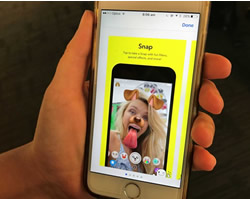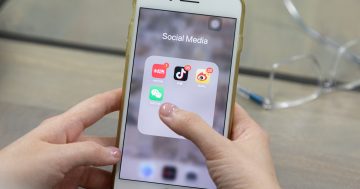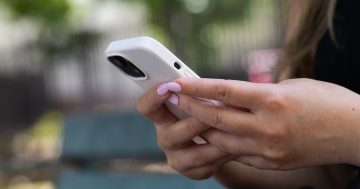Caroline Brooks* says new research links personality traits with problematic use of Facebook versus Snapchat.
 “Both Facebook and Snapchat have separate features that make users want to keep coming back and using these platforms,” says Dar Meshi, a cognitive neuroscientist and assistant professor in Michigan State University’s College of Communication Arts and Sciences.
“Both Facebook and Snapchat have separate features that make users want to keep coming back and using these platforms,” says Dar Meshi, a cognitive neuroscientist and assistant professor in Michigan State University’s College of Communication Arts and Sciences.
“We were interested in measuring not only problematic use, but also the specific social rewards people might be looking for when using them.”
The study in the journal Addictive Behaviors Reports measures 472 college-aged participants’ time spent on the two platforms, attempts to quit them, and problematic use.
The researchers also asked participants to fill out a questionnaire that measured their preferences for social rewards—or, types of social interactions they enjoy—such as admiration, passivity, prosocial interactions, sexual relationships, sociability, and, lastly, negative social potency.
“We found that participants spent more time on Snapchat than on Facebook, and they also demonstrated more problematic use of Snapchat,” Meshi says.
“Surprisingly though, participants reported more attempts to quit Facebook.”
While Meshi and coauthor Ofir Turel, a professor of information systems and decision sciences, did not examine what specific mechanisms within the two platforms led to problematic use, they did find a psychological parallel with users’ problematic use.
“Remarkably, we saw a correlation between problematic use on both platforms and negative social potency—which is people’s desire to be cruel, callous, and use others for personal gain,” Meshi says.
“These survey items asked about one’s enjoyment embarrassing or angering others, for example.”
Meshi explains that people with more problematic use had higher preference levels for negative social potency rewards; so, the more problematic your use is, the more you enjoy these negative social interactions.
Negative social potency, admiration (receiving admiration from others), and sociability were found to be positively associated with problematic Snapchat use, but only negative social potency correlated with problematic Facebook use.
The other surprising finding, Meshi says, was that participants attempted to quit Facebook more than Snapchat.
“Given our finding that college students’ use of Snapchat is more problematic, we thought there would have been more attempts to quit or curtail use,” Meshi says.
Meshi explains that understanding which social reward preferences are related to problematic use is essential for clinical psychologists as they treat patients.
“If there’s a patient who says they’re having problems overusing these platforms, the clinician will have a better understanding as to what drives them socially and should be better able to help them,” says Meshi.
*Caroline Brooks is Public Relations Manager at Michigan State University. She can be contacted on Twitter @CarolineKBrooks
This article first appeared at futurity.org.











